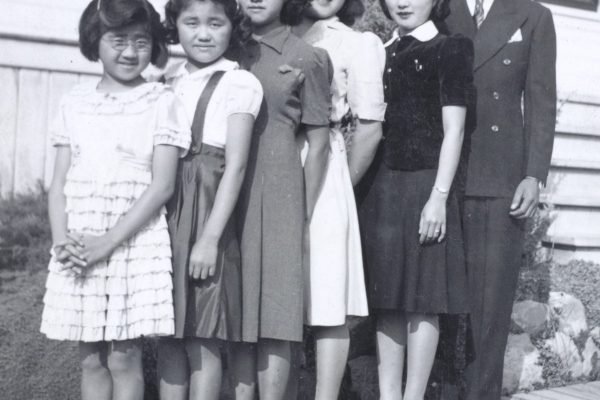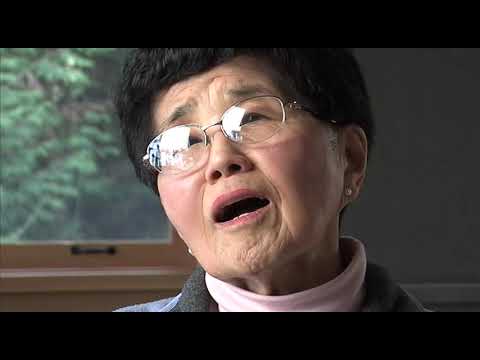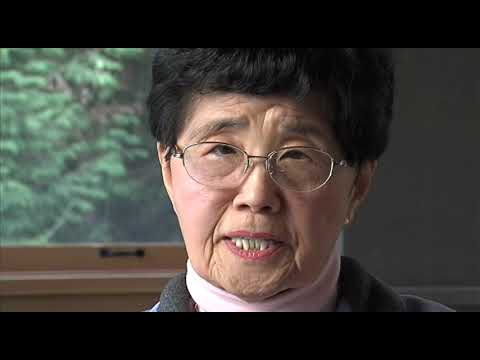Video Interview — December 2006
Manzanar/Minidoka Twin falls, nurse’s aide, swim in canal – Yae Yoshihara (OH0039)
Transcript
Then, it was that fateful day, December 6, 1942, tension was building up in Manzanar, and there was discontent, especially among those Kibei, those who were American born but educated in Japan. And they; because they were indoctrinated in Japan, they had this loyalty to Japan. So there was this friction between the loyal and the disloyal Japanese there in camp. And they came to a head and there was a riot that evening, that day, there was a lot of tension, and I can still remember this big brawl because we were in Block 3 and all this took place several or two blocks down the way. And we could hear the noise and pretty soon, there was a truckload of Kibeis and they were singing the Japan national anthem, Kibigayo.
We could hear that. And we heard some gunshots. Well, one person was killed and another wounded. And then it was martial law was instituted and everything closed down. They had to shut everything down, except the basic services, the hospitals, and post office and the churches were allowed to remain open but other assembly was not permitted. And so here we had another break from school.
Then, because the Bainbridge people feared about this tension and all, they requested transfer to Hunt, Idaho. So that occurred on February 24, 1943. That most, not all, went to Minidoka. When we got there it was basically the same setup, the same rules and meeting new people, going to school, doing different activities. However, by that time, things were pretty, things were beginning to loosen up a little bit. People were permitted to get day passes to go to Twin Falls to shop or go see a movie or whatever. And then of course you have to come back. But there was a bus service that went to… back and forth. The one thing is that we had… thing that was different over there, there was this canal. We went swimming in that canal which is really very dangerous because there was big drop-offs. If you couldn’t swim and you went into one of those drop–offs, you could drown. A person did drown in that canal. But we were young and daring. The first summer in Idaho we went to vacation bible school, that summer.
And the following summer, there was — because the older ones were leaving camp by that time. Some of them were going out to work, relocate permanently. There were others who were… wanted to go to school — there was a shortage of manpower. So they sent out notices saying, “We need nurse’s aides.” So my friend Yuri and I signed up. And here we were mere fourteen, fourteen going on fifteen. They gave us training for two weeks. They taught us how to make beds, how to take care of patients, and all that, and how to read these medical terms in shorthand. So that summer, she and I worked at the hospital. That was good experience because I had much earlier decided I wanted to be a nurse and this was a wonderful opportunity. So I really enjoyed that. Then of course when school started again in the fall, I had to go back to school.





